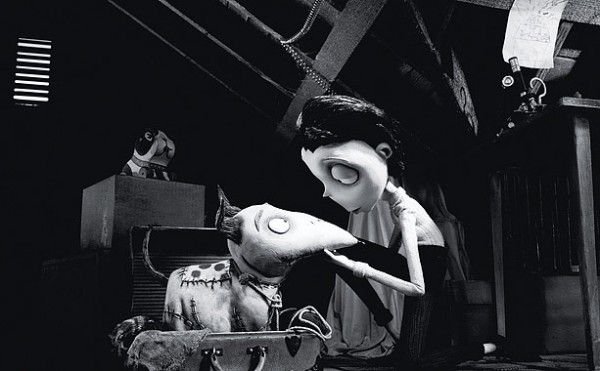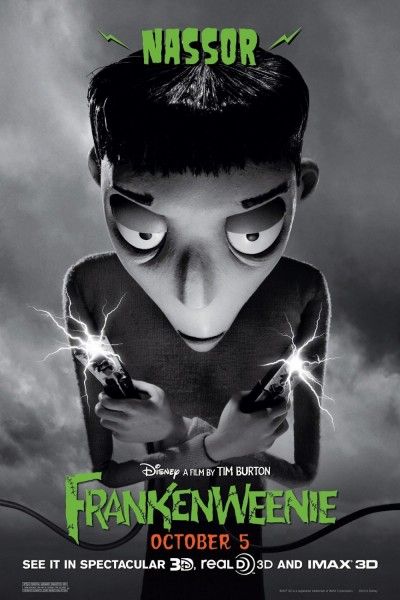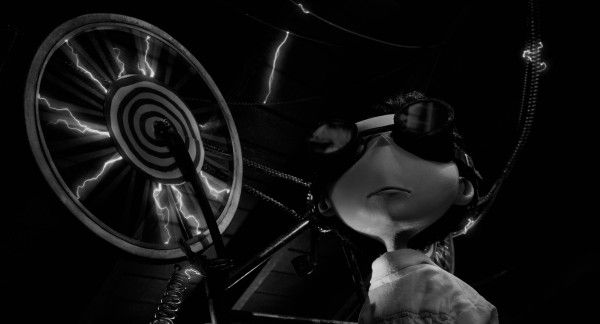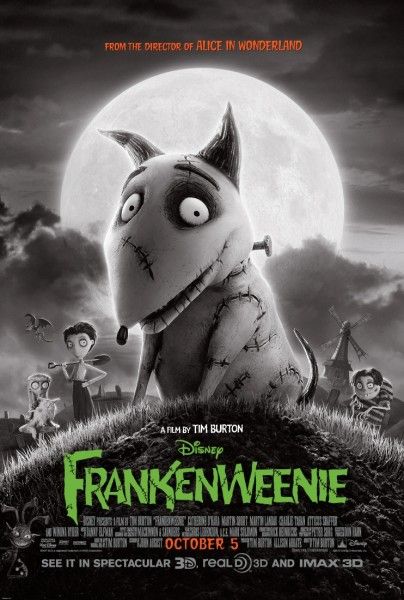Frankenweenie, from director Tim Burton and screenwriter John August, is a charming, macabre and heartwarming tale, about Victor (voiced by Charlie Tahan), a young boy who, after unexpectedly losing his beloved dog Sparky, harnesses the power of science to bring his best friend back to life, but quickly faces unintended and sometimes monstrous consequences for his actions. The voice cast also includes Catherine O’Hara, Martin Short, Martin Landau, Winona Ryder and Atticus Shaffer.
At the film’s press junket, actor Martin Short spoke to Collider for this exclusive interview about how much fun it is to work in the creative atmosphere that Burton establishes, how working with Burton on Frankenweenie compared to when they first worked together on Mars Attacks!, the fun of getting to create three different characters for the film, how impressed he was with the finished product, what makes Burton’s movies so special, and why he enjoys getting to have such a varied, multi-generational career. Check out what he had to say after the jump.
Collider: How much fun is it to work with Tim Burton, in such a creative atmosphere?
MARTIN SHORT: It’s always ideal. When you start a new project and they say, “Your director is going to be Joe Blo,” you’re hoping that Joe Blo will be the next Martin Scorsese, but it doesn’t always work out that way. In Tim’s case, he’s the real deal. He’s a creatively brilliant guy who walks to the beat of his own drum and creates his own art. You just feel privileged to be a part of it.
Does he feel like the same director that he was when you first worked with him on Mars Attacks?
SHORT: I don’t see any difference. And Catherine [O’Hara], who worked with him right at the beginning, sees no difference. When I worked with Tim in 1996, he was already Tim Burton. It was post-Batman. He’d done a lot of things. And he was really playful and joyful. He asked, “What do you want to do? How do you see it?” I remember we did a scene where I had to seduce this woman in a bedroom, and it was a round bed, and I was expecting it to be very, “Okay, now, you’ll go over here and we’ll hit that thing, and I’ll shoot it this way.” But, he said, “Okay, what do you want to do?” So, I said, “What if I jumped on the bed to impress her?,” and he loved that. Then he said, “Okay, what else?” I was amazed by that. Obviously, if I had done something that didn’t interest him, we wouldn’t be shooting it. But, he had hired me, so he could take credit for anything I could come up with. He could say, “Listen, I’m the guy who hired him.” So, he’s very collaborative, but you also feel safe. An actor can spew out thoughts, but they’re not all gold. You’d like to think that you’re free to spew out everything, and someone will catch the gold and say, “Okay, that’s what we’re going to do.” He’s ideal for an actor to work with, and I had the same experience when we did this film.
Was it fun to get to create three different characters for this film and get to experiment with different voices?
SHORT: Certainly with the father, he was very specific. He didn’t want any characterization. He wanted it real. He wanted my voice. He wanted it soothing and loving. He wanted an ideal dad. For the other voices, he would have ballpark ideas of what they should be. He wanted Burgemeister to be sinister, menacing, mysterious, creepy and funny. But, how I would achieve that was up to me to keep experimenting with. He makes the final decision of what it will be. My job is to keep saying, “What about this? What about this?” I think, during the second session, I had this idea after hearing somebody on television who had talked about giving up smoking, and they had that branchial thing. That’s the kind of detail that Tim always started laughing about and said he found that scary. That’s the kind of detail that he loves.
Was it fun to actually get to record the scenes with Victor’s parents with Catherine O’Hara?
SHORT: Oh, completely! First of all, Catherine is a lovely, decent, good person. That’s sincere, and that’s who the mother is. Having us be able to be there together and interact together, we have a long, long history with each other.
Since you only had the scenes that you were doing, what was it like to see everything all put together for the finished product?
SHORT: It’s a different kind of thing. There was an era when people would turn on their radio and hear a radio drama. Now, you could be as scared by that as seeing it filmed. In those days, people used to sit by the fire and imagine what they were hearing. Everything is its own art form. If you play Sweeney Todd on Broadway, that’s one kind of performance, but you’re going to use a different muscle when you do Who’s Afraid of Virginia Woolf? on the screen. And you’re going to use a different muscle, if you’re just using your voice ‘cause that’s all you can convey. If they filmed you, you wouldn’t be convincing because you’d be trying to just create the sound, which you would therefore do definitely than if you were doing a live-action project.
What most surprised you about the entire process of stop-motion animation?
SHORT: You know, that doesn’t have anything to do with me. This could have been a non stop-motion movie and I still would have done all of my work the same way. But, when you get to see what it looks like, it’s spectacular. The process is staggering and mind-boggling. For five seconds, you can spend a week. I don’t know how they do it. The work that’s gone into this project is unbelievable.
People always talk about how you can tell a Tim Burton movie is a Tim Burton movie, from the moment it starts. What do you think it is that really encompasses a Tim Burton movie?
SHORT: He’s like [Alfred] Hitchcock, and other directors who have such a strong signature to them. I think they’re coming from such a sincere, specific and original place. We can flip on television and see a crime show, and one looks like the other, looks like the other, looks like the other. If you turn on Dave Letterman’s show, there’s only one Dave Letterman. So, you’re more intrigued by that. That’s how fans are created. They appreciate a true, original artist, and that’s what Tim is.
Do you enjoy getting to do voice work and having the ability to bring any type of character to life?
SHORT: Well, I don’t think it’s restricted to voice work. If someone says, “Do you want to play an assassin in a movie?,” you’re not sitting back and saying, “Well, I don’t know if I can because I wouldn’t be an assassin.” You’re an actor, and actors are blank slates, whether it’s voice work, live-action or the theater.
As an actor, what does it mean to you, to have a career that is so varied and multi-generational?
SHORT: Oh, it’s spectacular! It’s great! It’s not like you set out and say, “I know what I’m going to do. I’m going to have many generations love me.” But, it’s fantastic! It’s wonderful! I think it’s miraculous. I think it’s miraculous for someone to make a living for a year, as an actor, let alone 10 years or 40 years. And I think I was lucky, in the sense that, being Canadian, the Canadian instinctively are like the British. They just do all mediums at once. No one is saying, “Well, I don’t really do stage.” They just say, “Do I bring a suit, or do I not?” It prepares you for a career that’s more eclectic and has greater variety, but keeps you interested. At a certain point in your life, you reach a point in your career where you’re no longer working to pay the rent. You reach a point where the rent is covered for life, so now you have even more pressure to stay interested. That is when a variety of things makes it more interesting than just doing one thing that you’ve done many times, yet again. I think I’ve been really lucky to keep my career so varied, and to be open. There’s safety in repetition, but there’s also a trap there.
Frankenweenie opens in theaters on October 5th.




